Beyond the Grind: The Complete Guide to Whole Bean Coffee with Bazan Coffee
If you're serious about flavor, freshness, and full control of your brew, there's no substitute for whole bean coffee. With its rich aroma, customizable grind, and ability to preserve peak flavor for longer, whole bean is the gold standard among specialty coffee enthusiasts. But to truly unlock its potential, you need to understand more than just the bean—you need to understand its storage, grinding, brewing, and sourcing.
In this in-depth 1,500+ word guide from Bazan Coffee, we’ll walk you through everything you need to know about whole bean coffee. Whether you’re new to specialty beans or looking to refine your brewing method, this article will guide you from bean to brew with confidence.
Introduction: Why Whole Bean Coffee Reigns Supreme
When it comes to brewing better coffee at home, freshness is everything—and whole bean coffee delivers. Compared to pre-ground coffee, whole beans retain more volatile aromatic compounds, essential oils, and nuanced flavors that make each cup stand out. Once coffee is ground, oxidation and staling accelerate, often within hours. Whole beans, however, maintain their integrity for weeks when stored properly.
The real benefit of whole bean coffee lies in flexibility. With the ability to grind fresh for every brew, you can dial in the perfect grind size for espresso, pour-over, French press, or cold brew. This level of control means better extraction, more balanced cups, and ultimately, better coffee.
CQI Insight: Grind size and uniformity are among the most influential variables affecting extraction time and flavor clarity.
How Long Does Whole Bean Coffee Last?
Shelf life is a key advantage of whole bean coffee over pre-ground. With proper storage, your beans can retain peak quality far longer.
Unopened, sealed bags:
-
Last 6–9 months
-
Vacuum-sealed or nitrogen-flushed bags protect against oxygen and moisture
After opening:
-
Best consumed within 2–4 weeks
-
Store in a dark, airtight container away from heat, humidity, and light
How long is whole bean coffee good for? If properly stored, you can still get an enjoyable cup up to 8 weeks after opening. However, the sensory experience starts to decline after 14–21 days for specialty-grade beans.
Barista Hustle Tip: Do not refrigerate or freeze daily-use beans—condensation leads to faster degradation.
Organic Whole Bean Coffee: Better for You and the Planet
Organic whole bean coffee represents more than a health choice—it’s a statement of sustainability. Certified organic coffee is grown without synthetic fertilizers, pesticides, or herbicides, preserving soil integrity and minimizing ecosystem damage.
Why choose organic?
-
Cleaner beans, no chemical residue
-
Encourages biodiversity and shade-grown practices
-
Often harvested by hand, leading to higher cherry selection quality
At Bazan Coffee, our organically grown beans are nurtured using biodynamic farming principles in the highlands of Vietnam—resulting in a cup that’s both environmentally and ethically superior.
Flavored Whole Bean Coffee: Natural vs Artificial
The popularity of flavored whole bean coffee has grown, but not all options are equal. Most commercial flavored beans are coated with synthetic oils post-roast, which can damage grinders and leave chemical aftertastes.
Better alternative?
At Bazan, we achieve rich, naturally occurring flavors—like chocolate, fruit, or spice—through methods like:
-
Anaerobic fermentation
-
Natural drying
-
Precise roasting profiles
For example, our Fine Robusta – Krong Năng develops caramelized sweetness and tropical undertones without any added flavoring.
SCA Research: Post-harvest processing and roast development can express fruit, floral, and spice notes naturally.
Premium Whole Bean Coffee: What Sets It Apart
What qualifies as premium whole bean coffee? It’s more than price—it’s about traceability, cultivation, and post-harvest handling.
Indicators of Premium Coffee:
-
Grown at altitude (1000m+)
-
Selectively hand-harvested cherries
-
Single-origin or microlot traceability
-
Advanced fermentation (natural, honey, washed)
-
Roasted in small, quality-controlled batches
Bazan Coffee meets all these criteria. Our beans are grown in the mineral-rich Bazan red volcanic soil of Vietnam, harvested by hand at peak ripeness, and processed with care to highlight origin characteristics.
WCR Insight: Premium beans with well-managed post-harvest processes yield higher cupping scores and longer-lasting flavors.
How to Use Whole Bean Coffee: From Bean to Brew
Understanding how to use whole bean coffee is crucial for consistent, delicious results.
Key steps:
-
Choose the right grind size based on your brew method
-
Measure coffee and water accurately
-
Grind just before brewing
-
Use filtered water heated to 195–205°F (90–96°C)
Grinding fresh unlocks flavor compounds that otherwise degrade within minutes post-grind.
CQI Note: The brew method should always inform the grind. A mismatch leads to over- or under-extraction.
How to Grind Whole Bean Coffee
Grinding is where flavor meets control. Use a burr grinder for consistency.
|
Brewing Method |
Ideal Grind Size |
|
Espresso |
Fine |
|
Moka Pot |
Medium-Fine |
|
Pour-Over |
Medium |
|
French Press |
Coarse |
|
Cold Brew |
Extra Coarse |
Tips:
-
Clean grinder regularly to avoid flavor cross-contamination
-
Adjust grind based on extraction (slow = too fine, fast = too coarse)
How to Brew Whole Bean Coffee
How to brew whole bean coffee depends on your method, but here’s a basic pour-over guide:
-
Use a 1:15–1:17 coffee-to-water ratio
-
Rinse your filter paper to eliminate off-flavors
-
Bloom the coffee with 40g of water (30 seconds)
-
Pour in concentric circles until target weight is reached
-
Total brew time: 2:30–3:30 minutes
SCA Standard: Consistent water temperature and flow rate yield the best extraction.
Is Whole Bean Coffee Cheaper Than Ground?
In terms of cost per cup, whole bean coffee is often more economical, especially for premium coffee drinkers.
-
Pre-ground coffee stales faster, leading to waste
-
Whole beans let you brew only what you need
-
Using a reusable pod or manual method (pour-over, French press) saves more long-term
Bazan’s beans are roasted fresh, meaning you get the full value of every gram.
WCR Note: Whole bean users report higher satisfaction and less waste compared to those using pre-ground.
Frequently Asked Questions (FAQ)
Q1: How long does whole bean coffee last once opened? Ideally, consume within 2–4 weeks for optimal freshness.
Q2: What’s the difference between flavored and naturally processed coffee? Flavored beans are coated with oils. Naturally processed beans develop flavors via drying and fermentation.
Q3: Is organic coffee healthier? Yes. It avoids synthetic inputs and often has higher antioxidant levels.
Q4: What’s the best way to grind beans at home? Use a burr grinder and match the grind to your brewing method.
Q5: How to brew whole bean coffee without a grinder? Use a mortar and pestle or ask your roaster to grind for your method.
Conclusion: Whole Bean, Whole Flavor
From freshness to flexibility, whole bean coffee is the foundation of any great cup. With Bazan Coffee’s premium Vietnamese selections—grown at high altitudes, processed with care, and roasted fresh—you can grind, brew, and sip with confidence.
Ready to taste the difference?
Shop Bazan Coffee’s Whole Bean Collection
Unlock flavor. Control your ritual. Brew better—with Bazan.



